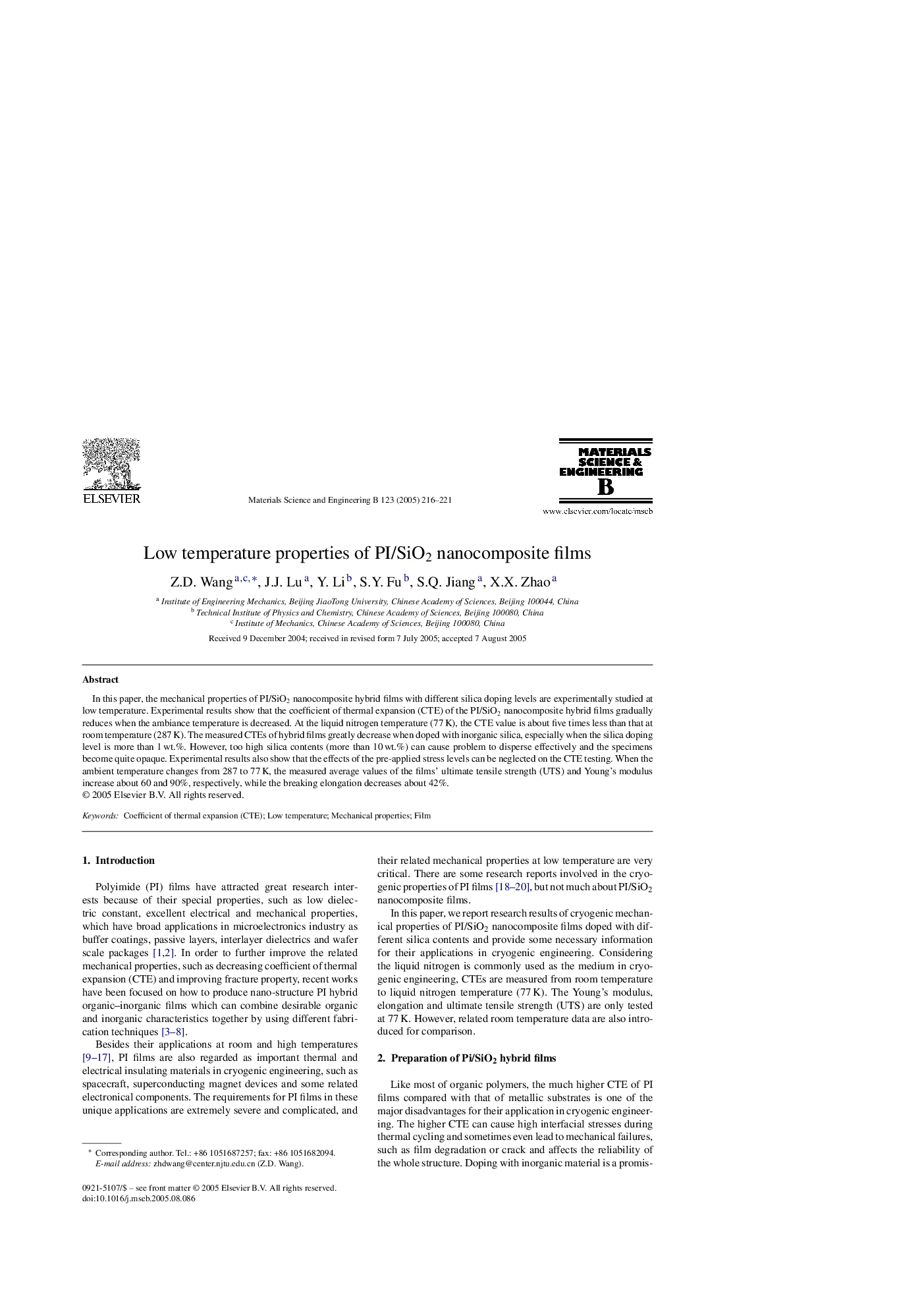| Article ID | Journal | Published Year | Pages | File Type |
|---|---|---|---|---|
| 10639965 | Materials Science and Engineering: B | 2005 | 6 Pages |
Abstract
In this paper, the mechanical properties of PI/SiO2 nanocomposite hybrid films with different silica doping levels are experimentally studied at low temperature. Experimental results show that the coefficient of thermal expansion (CTE) of the PI/SiO2 nanocomposite hybrid films gradually reduces when the ambiance temperature is decreased. At the liquid nitrogen temperature (77Â K), the CTE value is about five times less than that at room temperature (287Â K). The measured CTEs of hybrid films greatly decrease when doped with inorganic silica, especially when the silica doping level is more than 1Â wt.%. However, too high silica contents (more than 10Â wt.%) can cause problem to disperse effectively and the specimens become quite opaque. Experimental results also show that the effects of the pre-applied stress levels can be neglected on the CTE testing. When the ambient temperature changes from 287 to 77Â K, the measured average values of the films' ultimate tensile strength (UTS) and Young's modulus increase about 60 and 90%, respectively, while the breaking elongation decreases about 42%.
Related Topics
Physical Sciences and Engineering
Materials Science
Electronic, Optical and Magnetic Materials
Authors
Z.D. Wang, J.J. Lu, Y. Li, S.Y. Fu, S.Q. Jiang, X.X. Zhao,
